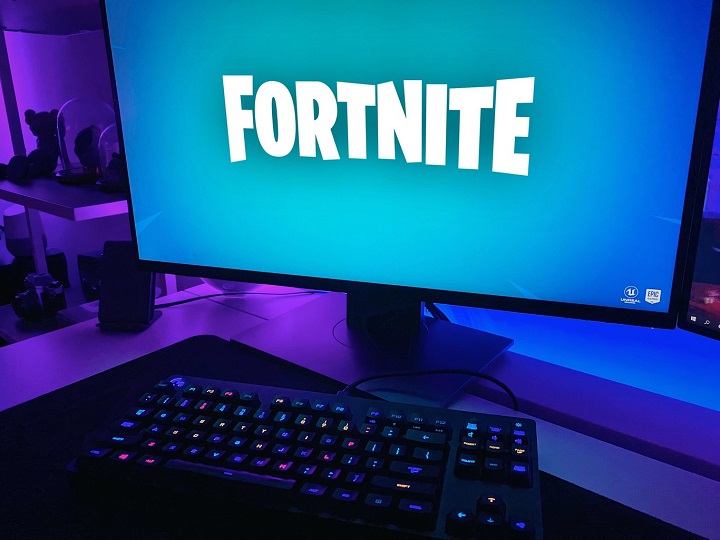“Oasis was also the largest public library in the world, where even a miserable child like me had access to all the books written on the planet, all the recorded songs, and all the movies, television series, video games and works of art created. A place where the knowledge, art and entertainment of human civilization were gathered. And it was there, waiting for me.”
The quote from the book Ready Player One is the perfect way to define the Metaverse, the next great technological advance to which not only the world of video games, but also that of entertainment aspires. A challenge that, after the investment of 1,000 million dollars, seems increasingly close for Epic Games.
What is the Metaverse
The idea of a Matrix that revolutionises the concept we have of the internet today may seem something closer to science fiction than reality, but the truth is that the clues about its future have been settling in recent years.
Our presence on the web is already that of an avatar that, on many occasions, is quite different from reality. Social networks have become part of our daily lives and the world of video games has allowed us to take that idea of a virtual being created to our liking one step further.
As in Ready Player One, the idea of the Metaverse is that of a virtual space in which users can enjoy a space in which to express themselves. A constantly growing and evolving nucleus that serves as the content of everything we did on the internet until now, from that aforementioned personal expression to entertainment.
In essence, the concept of the Metaverse is as crazy today as virtual reality, the smartphone or autonomous vehicles were 10 years before they were invented and commercialised. We knew all of this would come one day, but we didn’t know when.
The Metaverse, on the other hand, seems to have been dated and targeted for longer than we think. Just four years ago, in 2017, the CEO of Epic Games said this :
“What we need are front-facing interior and exterior cameras that scan your body. That is what we lack. The technology has already proven to work at a high commercial level costing tens of thousands of dollars. It is probably about three years away “.
The Metaverse of Epic Games and Sony?
However, this was not the first time that Tim Sweeney spoke openly about the idea of a Metaverse. A year before those statements, he also stated the following :
“It’s fast approaching. In a little over a year Sony plans to launch a mobile with a 4K screen. It’s an LCD, not an OLED, so it’s not applicable to VR, but give me a 4K OLED and we’ll have a prototype of it soon. virtual reality with twice its current resolution. All these components have been designed for mobile and adapted for virtual reality. When that first wave of products specifically designed for virtual reality arrive, we will have much smaller devices, lighter and with thinner lenses to support it. All this will allow us to reach 8K per eye in a matter of five, six or seven years.”
The reference to Sony becomes even more important after the announcement of a new collaboration between Epic Games and the Japanese company. The creators of PlayStation invested 250 million dollars in 2020 in the purchase of minority shares of the creators of Fortnite, and now they have repeated the play again adding another 200 million dollars to the 1,000 that Epic will receive.

“Sony and Epic have built a business midway between creativity and technology, sharing the vision and leadership of 3D social experiences across games, film and music. Together we will strive to build an even broader digital ecosystem. and accessible to all consumers and content creators.”
If Epic previously avoided talking directly about the Metaverse, its latest message makes the company’s position on the latest rounds of financing very clear:
“We are grateful to our new and existing investors who support our vision for Epic and Metaverse. Their investment will help accelerate our work around creating connected social experiences across Fortnite , Rocket League, and Fall Guys , while empowering developers. and game creators with the Unreal Engine, Epic Online Services and the Epic Games Store. “
To all this we have to add the turn that Fortnite has been experiencing in recent years. You are no longer just going to play the Epic Games game, it also has a more social setting where you can meet your friends, enjoy concerts and even watch movies. An evolution with which it is difficult not to establish certain comparisons.
Why haven’t I heard any of this before?
The next question posed to us is: if this is as important and revolutionary as it seems, why haven’t we heard about it more earnestly? The answer to that, actually, is that we have been experimenting with these kinds of universes for a long time, but they have all been sand castles that the current has destroyed over time.
“It’s one of those ideas that people played down for a long time, because experiences like Second Life didn’t quite take off on a large scale. Simpler systems like Facebook did, even though we had the capabilities of 3D graphics by then. So we forgot about it for the last 15 years.
When virtual reality came along and we started to see the possibilities of things like real-time motion capture, it became clear that we were a few years away from being able to capture human movements and emotions into an interactive experience close to reality “.
Once again, Sweeney is pretty spot on and transparent about Epic Games’ goals. With Unreal Engine 5 demonstrating all that is yet to come, it seems the only thing we can hold onto is patience.
Along with previous statements, he took for granted that not a few will try to create their own virtual world and that the vast majority of them, if not all, will fail in the first attempt. At that point it will be time to keep trying, and ultimately the Metaverse will finally arrive.
“Keep in mind that the web existed 10 years before social networks became mainstream. Even if the technology was available back in 1995, it just didn’t happen until someone had the idea to do it, they did it in a big way and with a certain level of quality, a decade later. We are not limited by technology, but by our ideas, experimentation and how quickly we test things (…).
It will arrive in the coming years, although it will require the collaboration of many companies to achieve it. No company has what it takes.”
